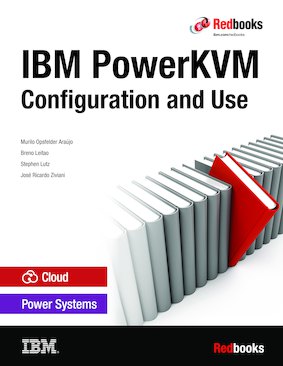Abstract
This IBM® Redpaper Redbooks® publication presents the IBM PowerKVM virtualization for scale-out Linux systems, including the new LC IBM Power Systems™.
PowerKVM is open source server virtualization that is based on the IBM POWER8® processor technology. It includes the Linux open source technology of KVM virtualization, and it complements the performance, scalability, and security qualities of Linux.
This book describes the concepts of PowerKVM and how you can deploy your virtual machines with the software stack included in the product. It helps you install and configure PowerKVM on your Power Systems server and provides guidance for managing the supported virtualization features by using the web interface and command-line interface (CLI).
This information is for professionals who want to acquire a better understanding of PowerKVM virtualization technology to optimize Linux workload consolidation and use the POWER8 processor features. The intended audience also includes people in these roles:
- Clients
- Sales and marketing professionals
- Technical support professionals
- IBM Business Partners
- Independent software vendors
- Open source community
- IBM OpenPower partners
It does not replace the latest marketing materials and configuration tools. It is intended as an additional source of information that, along with existing sources, can be used to increase your knowledge of IBM virtualization solutions.
Before you start reading, you must be familiar with the general concepts of kernel-based virtual machine (KVM), Linux, and IBM Power architecture.
Table of Contents
Chapter 1. Introduction
Chapter 2. Host installation and configuration
Chapter 3. Managing hosts and guests from a Web interface
Chapter 4. Managing guests from the command-line interface
Chapter 5. Processor and memory virtualization
Chapter 6. I/O virtualization
Chapter 7. Advanced topics
Chapter 8. PowerKVM Development Kit
